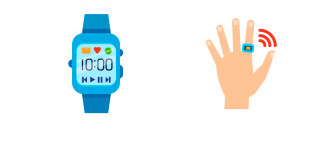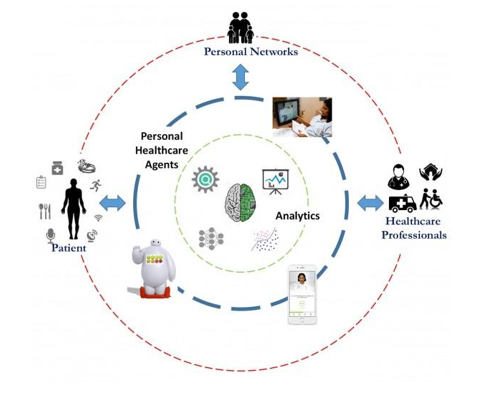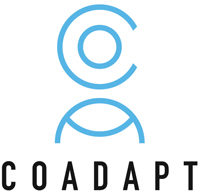The main aim of the study is to create a personalised conversational application with comprehensive change support for ageing citizens based on data analytics focusing on high-level strategies and latest change psychology approaches considering wellbeing and digitalisation across work and personal life.
Task is studying cross-cultural applicability by evaluating the CO-ADAPT application and adaptations in work systems in two different cultural context in Italy and Finland. The target is to integrate in one system guided by a conversational agent available knowledge on intervention programs on wellbeing and ICT literacy with continuous analysis of physiological measurements and user interactions. The knowledge base also includes the content (in terms of instructions, resources and persuasive feedback) to run and deliver the program to the user through the conversational agent. The users will be equipped with user friendly devices such as a smartphone and a wearable sensor (current plan includes a wristband by Empatica E48 and the Oura ring9).
The knowledge base consists of symptoms expressed in textual forms and numeric or qualitative thresholds and rules. Symptoms will be obtainable via the conversational agent, and from sensor analytics on physiological data, and combinations of such symptoms.
2nd Case Study

Overall Goal
-
- Supporting and monitoring mental health through interactive conversations based on human-centered AI
- Design and develop innovative, AI based conversational technologies that may support ageing workers in coping with states of stress and anxiety due to challenging working environments.
Personal Healthcare Agents applied to Mental Well-Being in COADAPT
Effects of high stress levels in ageing workers
- Personal costs: limitations of self-efficacy, high risk of physical and mental (anxiety, depression) disease
- Societal costs: absenteeism, presenteeism, and productivity reduction
- Identification of potential population of ageing workers
Design principles for the Personal Healthcare Agents ( PHA )
- Personal conversational agent able to understand personal signals and information in context
- PHA integrates evidence-based psychological interventions with innovative, human-centered AI, approach
- Novel approach to personal and professional conversations between users, health professionals and PHA
Data Collection protocol and Personal Healthcare Agent (PHA) Design
Personal Healthcare Agents @ http://sisl.disi.unitn.it/pha/:
● PHA Acquire personal data and turn it into digital evidence.
● They Interpret the digital evidence in context
● They learn over time to widen their scope, cognitive and communication skills.
● They learn over time to interpret personalized evidences.
● They support the communication and interaction between users and their healthcare professionals.
● They facilitate the communication and interaction between healthcare providers, healthcare professionals and users.

Overall, the conversational application is willing to help the user to cope with different kinds of difficulties arising when age increases and working conditions changes rapidly. While personal and societal costs of difficulties in change adaptation are very high, the problem is still underestimated, both at a personal and at a societal and organizational level. The availability of scalable and personalized solutions to improve adaptation to change is crucial, and AI personalized conversational technologies may help, provided that they meet with some severe requirements, like awareness of the context of use, personalization, and careful implementation of models of change.
